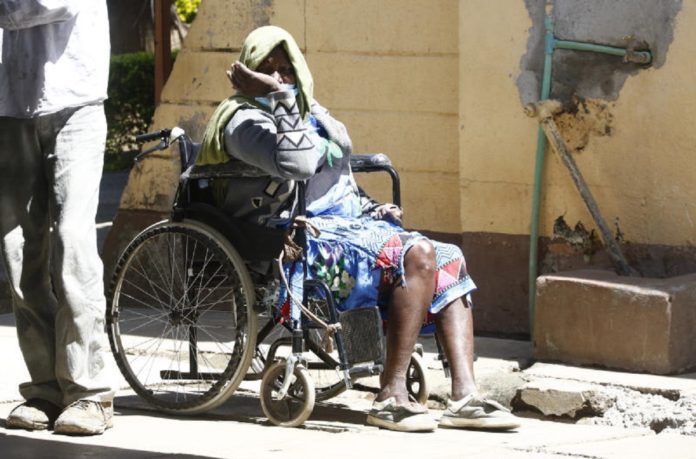Kenya’s public hospitals are likely to ground to a halt as nurses and clinicians vow to stay off work even as millions are facing three weeks in a row without healthcare amid the global COVID-19 pandemic.
With the rising cases of Coronavirus and the deadly toll the pandemic is taking on Kenyan, nurses, and clinicians at public hospitals made good their threat to boycott work over poor working conditions on December 6.
Through its union, the Kenya National Union of Nurses (KNUN), the nurses’ number 23,000 said they will only resume work after their demands are met.
Seth Panyako, the union’s Secretary-General, among other demands, told the State to compensate families of 26 nurses who have died of COVID-19 in line of duty.
The striking healthcare staff lament that many of their colleagues are dying from COVID-19 due to a lack of both protective gear and health insurance.
Joseph Ondiek, whose wife was to undergo delivery through Cesarian Section had to seek medical services at the Kenyatta National Hospital, a facility already struggling with the surge of cases.
“My wife requires to undergo a Caesarian Section. On reaching Kenyatta National Hospital, I could not be attended to the emergency requirements because of the long queues. All I am praying is that the government come to our rescue by listening to the nurses’ demands,” said Ondiek, who resides in Mathare, one of the informal settlements in Nairobi.
Worsening this already dire situation was when Kenyan doctors in pubic hospitals, said to number 7,200 members joined nurses and clinical officers in the nationwide strike.
The doctors’ concerns revolve around the lack of protective equipment and health insurance for frontline workers fighting against the spread of Coronavirus.
However, the doctors called off the strike three days later after the government acquiesced to their most immediate demands. Nurses and clinical officers’ demands were never attended to and hence continue to picket.
Healthcare staff strikes are a significant threat to universal access to healthcare globally and especially in Sub Saharan Africa. Kenya’s healthcare sector has seen an increase in such industrial action.
Since 2013, Kenya’s public health sector has been affected by frequent short strikes, culminating in nationwide strikes lasting a total of 250 days by doctors and nurses in a span of 11 months in the years 2016 and 2017.
Whilst health professionals have the right to picket, experts say their strike cripples health services with almost no public hospital inpatient services being administered, thus violating people’s right to healthcare.
In most of the healthcare workers’ strike, the Kenyan government has been employing reactive solutions such as sacking striking workers, jailing trade union officials which neither addresses the underlying problems nor build the resilience of the health system.
Last week, Mutahi Kagwe, the Cabinet Secretary for Health directed county governments to sack all striking healthcare staff.
“County governments should start advertising vacancies to replace those on strike if the striking health staff continue to be adamant,” Kagwe gave the directive when he addressed the media.
Kagwe urged the over 8,000 nurses currently jobless to apply for the positions once advertised.
However, officials of the Kenya Medical Practitioners and Dentists Union (KMDU) were quick to rubbish the directive.
“We are shocked by the government’s level of insensitivity and arrogance in dealing with the grievances raised by our members on their welfare and safety in COVID-19 times. The minister’s ‘appreciation’ to healthcare workers is illaudable,” KMPDU Acting Secretary-General Chibnzi Mwachonda told a press conference.
Samson Cherargei, a senator in Nandi, one of the counties in Kenya’s Rift Valley called on CS Kagwe to instead use his energy in unraveling those behind a multi-million COVID-19 heist scandal under his health ministry.
Bowing to pressure, the CS later said the government will not replace the healthcare workers on strike, a move he said was aimed at ensuring services continue to be provided in all public health facilities.
With the virus spreading, and on the frontline between a nervous public, the healthcare workers on whom all depend have in many instances been forgotten.
The World Health Organization estimates that health workers during the Ebola outbreak and six years ago were between 21 and 32 times more likely to be infected than the general adult population. More than 350 healthcare workers died while battling Ebola in West Africa.
Kenya, currently with some 48 million people has 9,068 licensed medical doctors, 537 Intensive Care Units, and only 256 ventilators.

